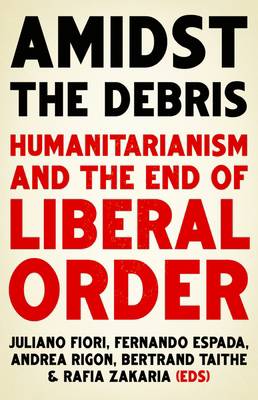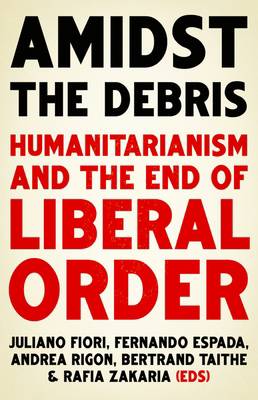
- Afhalen na 1 uur in een winkel met voorraad
- Gratis thuislevering in België vanaf € 30
- Ruim aanbod met 7 miljoen producten
- Afhalen na 1 uur in een winkel met voorraad
- Gratis thuislevering in België vanaf € 30
- Ruim aanbod met 7 miljoen producten
Zoeken
Amidst the Debris
Humanitarianism and the End of Liberal Order
Juliano Fiori, Fernando Espada, Andrea Rigo, Bertrand Taithe, Rafia Zakaria
Paperback | Engels
€ 40,45
+ 80 punten
Omschrijving
For many liberal commentators at the turn of the 1990s, the collapse of the Soviet Union represented a final victory for Western reason and capitalist democracy. But, in recent years, liberal norms and institutions associated with the post-Cold War moment have been challenged by a visceral and affective politics. Electorates have increasingly opted for a closing inwards of the nation-state, not just in the democratic heartlands of Europe and North America, but also on the periphery of the world economy. As the popular appeal of the 'open society' is thrown into question, it is necessary to revisit assumptions about the permanence of its enabling political and ethical projects. Previously promoted by the US and its allies as a necessary complement to liberal capitalist culture and the globalization of markets, humanitarian multilateralism seems to have lost strategic currency. In this collection of essays, public intellectuals, scholars, journalists and aid workers reflect on the relationship between humanitarianism and 'liberal order'. What role has humanitarianism played in processes of liberal ordering? Amidst challenges to liberal order, what are the implications for the political economy of humanitarianism, and for the practices of humanitarian agencies?
Specificaties
Betrokkenen
- Auteur(s):
- Uitgeverij:
Inhoud
- Aantal bladzijden:
- 336
- Taal:
- Engels
Eigenschappen
- Productcode (EAN):
- 9781787383968
- Verschijningsdatum:
- 15/09/2021
- Uitvoering:
- Paperback
- Formaat:
- Trade paperback (VS)
- Afmetingen:
- 142 mm x 216 mm
- Gewicht:
- 644 g

Alleen bij Standaard Boekhandel
+ 80 punten op je klantenkaart van Standaard Boekhandel
Beoordelingen
We publiceren alleen reviews die voldoen aan de voorwaarden voor reviews. Bekijk onze voorwaarden voor reviews.











